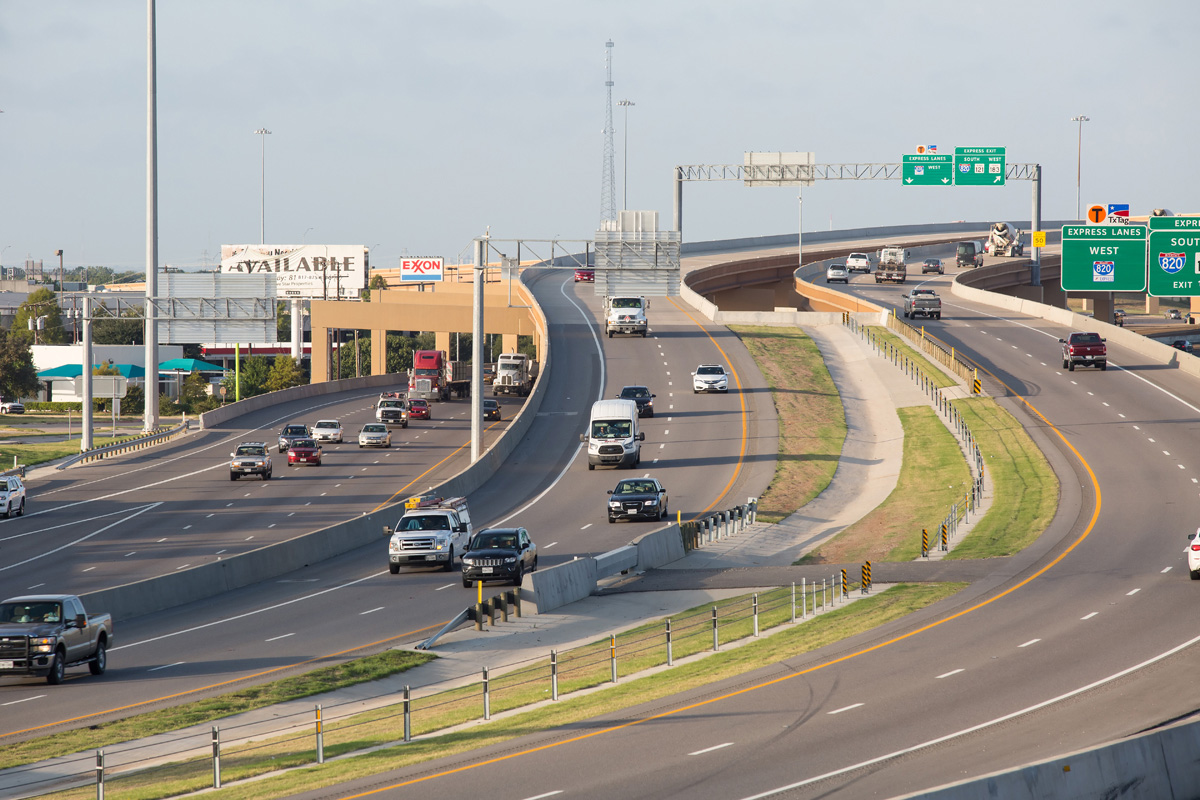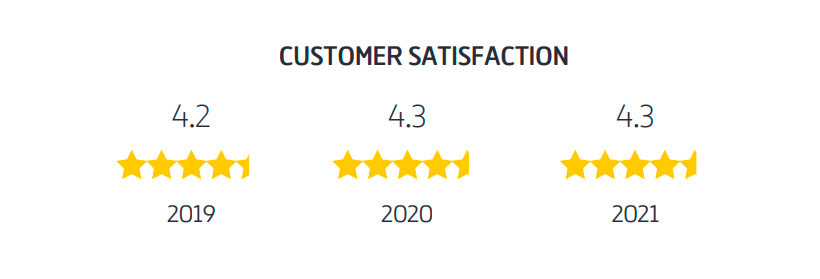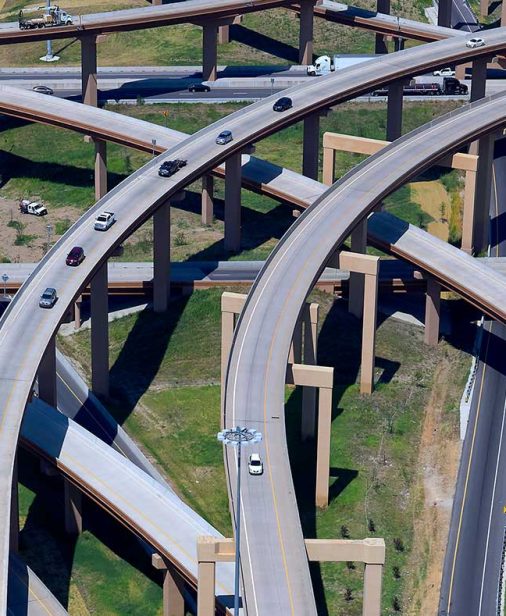-
1. Management Report 2021
- 1.1 In two minutes
- 1.2 Strategy and value creation
- 1.3 Ferrovial in 2021
- 1.4 Risks
- 1.5 Corporate Governance
- 1.6 Expected Business Performance in 2022
-
Appendix
- Alternative Performance Measures
- Sustainability Management
- Reporting Principles
- European Taxonomy
- Task Force on Climate Related Disclosures
- Scoreboard
- Contents of Non-Financial Information Statements
- SASB Indicators
- GRI Standard Indicators
- Appendix to GRI Standards Indicators
- Glosary of Terms
- Verification Report
-
2. Consolidated Financial Statements 2021
- Consolidated Financial Statements
- Audit Report
Quality
Thinking about the customer
Ferrovial works to achieve more effective and efficient management based on digitization, the use of new technologies and innovation projects.
The company applies innovative solutions to its infrastructures to offer customers and users services that guarantee a unique experience. In addition, the company promotes continuous improvement by certifying its activities in accordance with the most relevant standards.
QUALITY SYSTEMS AND CERTIFICATIONS
Ferrovial has implemented quality and environmental systems in all the contracts, most of which are certified in accordance with ISO 9001 and 14001 standards, although depending on local requirements they may be certified under other standards. In 2021, the activity certified by the company based on ISO 9001 and 14001 amounted to 87%.
It is a priority for the company to advance in the certification of its contracts under the ISO 50001 energy management standard. In 2021, Ferrovial Construction (in Spain and UK), Cadagua, Budimex in Poland and Ferrovial Services in Spain have certified their activity under this standard.
As part of quality management, complaints are collected and internal audits are performed on 100% of contracts. During 2021, 363 complaints were received, of which 95% were satisfactorily closed during the year.
To ensure compliance with legislation and technical regulations throughout all phases of the project life cycle, digital platforms are available, covering the areas of Quality, Environment and Health and Safety. As a result, all environmental requirements are met, including those related to air, noise and light pollution. Moreover, all employees involved in production are informed of the operating procedures, thus preventing and minimizing environmental risks. In this regard, docSite has been launched, a corporate tool that enables the digital management of documentation and processes associated with projects during and after construction. Thanks to this tool, management processes will be more agile and the dissemination and accessibility of information will be facilitated.
It should be noted that Ferrovial has been recognized by AENOR as the first company to certify its Sustainability Strategy with the Sustainable Development Goals (SDGs), promoted by the United Nations. This certification highlights the company’s actions in environmental, social and governance matters, reinforcing its solid commitment to the SDGs.
CUSTOMER AND USER SATISFACTION
The business units conduct periodic surveys on customer expectations and satisfaction. The analysis of the results obtained is used to identify the strengths and weaknesses of Ferrovial’s performance to establish actions for improvement. The methodology allows for a global analysis of customer perception of sustainability, operational excellence, innovation, responsiveness, reliability and trust, oversight process and management of agents involved in each project. The minimum target for customer satisfaction is 4 out of 5.
In addition, the company continues to work on measuring the level of user satisfaction of its infrastructures by collecting indicators from the Airports, Energy Infrastructure and Mobility divisions, which provides an overall view of the perception of the services provided.
CERTIFIED ACTIVITY
CUSTOMER SATISFACTION
USER SATISFACTION
HEATHROW PASSENGER EXPERIENCE
ZITY USER SATISFACTION
DIGITIZATION
Ferrovial has been using BIM (Building Information Modeling) methodology for the integrated management of construction projects for more than a decade. Space use simulations and 3D visualizations improve the design phase, minimizing labor and material costs, increasing energy efficiency, reducing waste and avoiding physical risks by visualizing and planning site logistics in advance.
In sustainable mobility Ferrovial has launched, in collaboration with important partners, the AIVIA initiative to develop 5G smart roads with advanced monitoring, sensors and simulation technology. This mobility model will improve road traffic flow without the need for additional works, helping to reduce emissions from traffic jams, as well as avoiding the impact of works that do not need to be carried out.
Ferrovial’s Digital HUB is working to find different ways to use Machine Learning, such as the creation of models capable of learning and predicting future behavior, the analysis of patterns and their automatic grouping. This makes it possible, for example, to program the operation of access to a road to reduce congestion.
In addition, there are other systems certified in accordance with various standards, among which the following are worth mentioning: UNE 19601; UNE-ISO 37001; UNE-EN ISO 50001; UNE 166002; The European Commission Eco-Management and Audit Scheme (EMAS) in accordance with EC Regulation no. 1221/2009; BIM ISO 19650; PAS2080:2016; PAS2080:2016 EKFB; ISO44001; ISO45001; EMAS III; IATF 16949; UNE 216701; UNE 1176- 1:2009; UNE-EN ISO 22000:2005; UNE-EN ISO 18295-1:2018; UNE 158101:2015; UNE 158301:2015; UNE 158401:2007; UNE 179002:2011; UNE-ISO 22320: 2013; UNE 15343:2008;; UNE-EN ISO 13485:2018; SGE 21; COVID-19 Protocol certification in accordance with the Regulation for the certification of protocols against COVID-19, by AENOR; and Madrid Excelente.

North Tarrant Express Toll Road, Texas, United States

